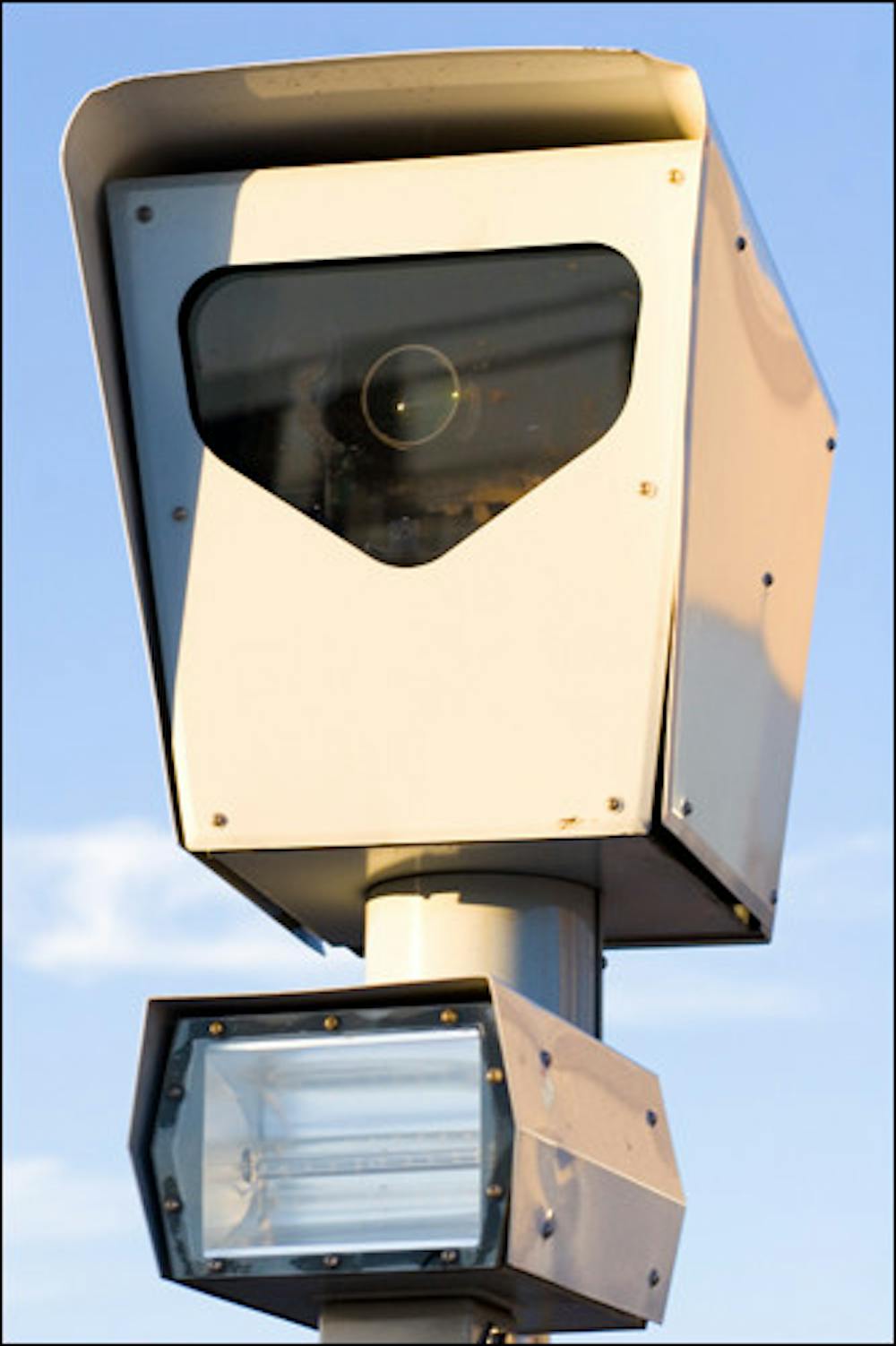State legislators are considering a bill that would remove all cameras used to catch speeding motorists on major highways.
If passed, House Bill 2106 will prohibit cameras on state highways such as the Loop 202 and Interstate 10, to better ensure public safety, said Rep. Sam Crump, who sponsored the bill. The Legislature will vote on the issue within the next three weeks.
“The bill addresses the cameras on the highways only, and some people may say that is intellectually irrational,” Crump said. “But for the most part, street cameras are controlled by municipalities, and they have their own bodies and city councils, and I’d like to respect that.”
Crump said he has received a lot of positive feedback saying the red-light cameras on local streets are different from the highway cameras, in that intersections can be very dangerous. But for the most part, only negative reactions have been heard about the highways.
Photo enforcement is geared more toward generating revenue rather than ensuring the public safety, Crump said.
“I felt like with a lot of the people who contacted me, there was a lot of confusion in the their minds,” Crump said. “They see these cameras, and it creates a kind of instant paranoia — like, ‘What is the speed limit?’ — causing them to slam on their breaks.”
Crump added that he thought the camera flashes, especially at night, are rather disconcerting and unsafe.
Despite Crump’s support of the bill, not every driver is against the photo-radar cameras.
According to a recent statewide study done by Public Opinion Strategies, 63 percent of voters fully support the use of the cameras throughout the state.
The study also showed that the top two groups to support the cameras are older voters and women.
Redflex Traffic Systems Inc., the company that operates the photo-enforcement cameras, declined to comment on this story.
Another main concern Crump and the other proponents had was addressing the issues of proper due process and being able to face your accuser.
“You don’t have an officer pulling you over using discretion, and then you get a ticket in the mail,” he said. “How do you defend yourself against them?”
Crump said the defenders of the photo-enforcement cameras use the logic that if you’re not doing anything wrong, you don’t have anything to worry about in terms of getting a ticket.
“I think that’s a pretty dangerous philosophy in defense of government law enforcement,” Crump said. “That’s why we implemented the Fourth Amendment to the U.S. Constitution against illegal search and seizure.”
The House Transportation and Infrastructure Committee voted 5-2 in favor of the bill last week, Crump said.
The Legislature’s normal business has been distracted by the budget issue, so the bill will not go to the floor to be voted on for approximately two or three weeks, Crump said.
Highway officials from the Department of Public Safety declined to comment on the bill.
An online group called www.CameraFraud.com has begun collecting signatures to put in a proposal that would ban photo radar on the November 2010 ballot.
DT Arneson, a volunteer for the online group, said the group is supportive of anything that restricts or bans automated, ticketing machines.
“No matter what the outcome of [House Bill] 2106, the citizens initiative to permanently ban photo enforcement state-wide will proceed,” he said. “Over 153,000 signatures are required for this effort.”
Theater sophomore Jason Stahl, a commuter student who drives from Pinal County, said the cameras are dangerous because of the number of drivers who are slamming on their breaks to avoid being ticketed.
“I personally believe on paper [that photo enforcement] seems like a good idea, but realistically it only endangers those who already obey speed laws,” Stahl said.
Crump said that he does have back up ideas if the vote does not go through.
“I would like to at least tweak the system, and one of the ideas would include designating the dollars being raised by the state to go toward DPS to hire more officers,” Crump said. “That is what I would like to see more of — hired patrol — than relying on cameras.”
Reach the reporter at brianna.mattox@asu.edu.




